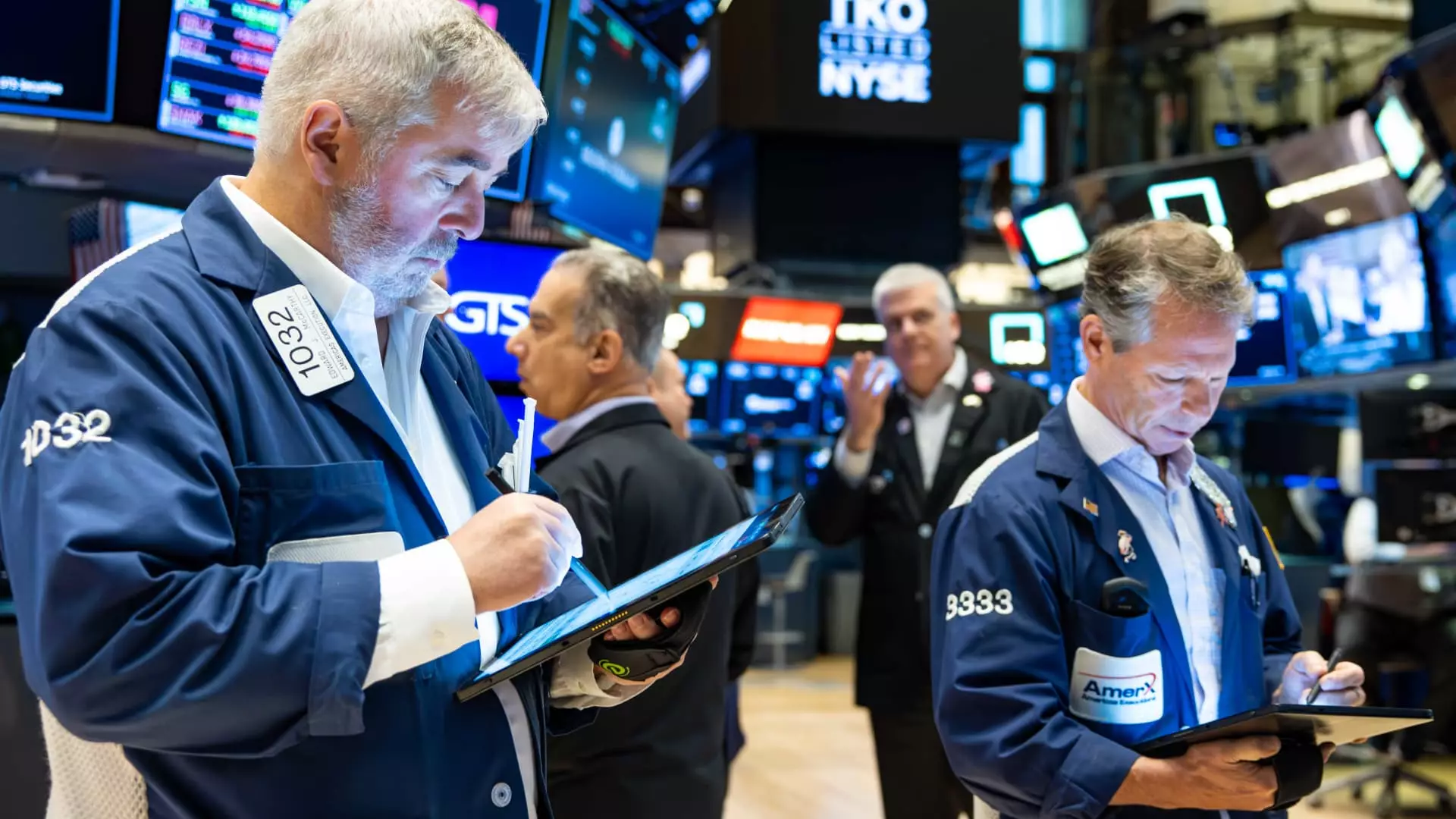In a rapidly shifting financial landscape, investors remain on high alert as geopolitical event impacts feel increasingly tangible. Set against this backdrop, the CNBC Investing Club, led by renowned host Jim Cramer, often provides real-time insights that help members navigate through the complexities of the stock market. On this occasion, we delve into highlights from a recent “Morning Meeting” session, revealing the key developments affecting various sectors and stocks.
On Tuesday, the S&P 500 and Nasdaq Composite managed to inch upward as Wall Street sorted through President-elect Donald Trump’s recent declarations regarding new tariffs on imports from key trading partners, including Canada, Mexico, and China. These announcements create ripples across multiple sectors, influencing investor sentiment and stock performance. Interestingly, the Dow Jones Industrial Average experienced a slight downturn, reflecting a degree of turbulence within the market.
In light of the upcoming Thanksgiving holiday, during which the market will be closed for a full day and experience a truncated session afterward, Cramer highlighted the importance of strategic positioning. Historically, he favors buying stocks on Wednesday and selling during the Friday session. However, with potential market-moving statements from Trump looming, he advised members to remain cautious and regroup rather than follow seasonal trends blindly. “Stay focused on solid stocks,” he noted, emphasizing the necessity of strategic patience.
Among the day’s significant losers, Best Buy took a notable hit, plummeting 8% following an underwhelming earnings report. This disappointment raises questions about the electronics retailer’s competitive positioning in an increasingly crowded marketplace. Cramer promised a comprehensive analysis of the company’s quarterly performance later that same day, indicating ongoing interest in understanding the implications for investment strategies.
In a similar vein, Stanley Black & Decker experienced a 3.5% decline as investors wrestled with the potential impacts of Trump’s tariffs on their operations in China. Despite this bearish sentiment, Cramer expressed a continued commitment to maintaining a long position in the toolmaker, suggesting confidence in its long-term prospects despite short-term volatility.
On a brighter note, Wells Fargo’s stock rose by 0.6% due to speculation reported by Reuters that the Federal Reserve may lift the asset cap currently imposed on the bank. This cap, instituted after a series of scandals, has restricted Wells Fargo’s growth since 2018. While the possibility of shedding this limitation remains unconfirmed, it symbolizes a pivotal moment for Wells Fargo’s recovery narrative. Cramer refrained from making immediate moves on the stock, instead emphasizing a more opportunistic approach: “When Wells Fargo comes down, then you do have an interesting investment.”
Conversely, Morgan Stanley faced more bearish tides, with shares dropping over 2%. This decline followed revelations about inadequate risk management within the firm’s wealth management sector. Cramer characterized this news as “very disappointing,” indicating broader implications for the company’s reputation and operational integrity. Additionally, a downgrade from HSBC, which shifted its rating from buy to hold, compounded the negative sentiment surrounding Morgan Stanley stocks.
Echoing concerns about the firm’s current valuation, Cramer urged caution: “I do not think you can buy the stock here.” He advocated for a more deliberate approach, suggesting that the conditions surrounding Morgan Stanley require deeper analysis before making any investment decisions.
Subscribing to the insights of the CNBC Investing Club with Jim Cramer equips investors with timely knowledge and actionable advice in an increasingly tumultuous market environment. From responding to unexpected tariff announcements to navigating fluctuating stock performances, staying informed remains essential for any investor serious about building and maintaining a robust portfolio. As the Thanksgiving holiday approaches, the need for strategic foresight has never been more critical for adapting to ever-changing market dynamics.

Leave a Reply